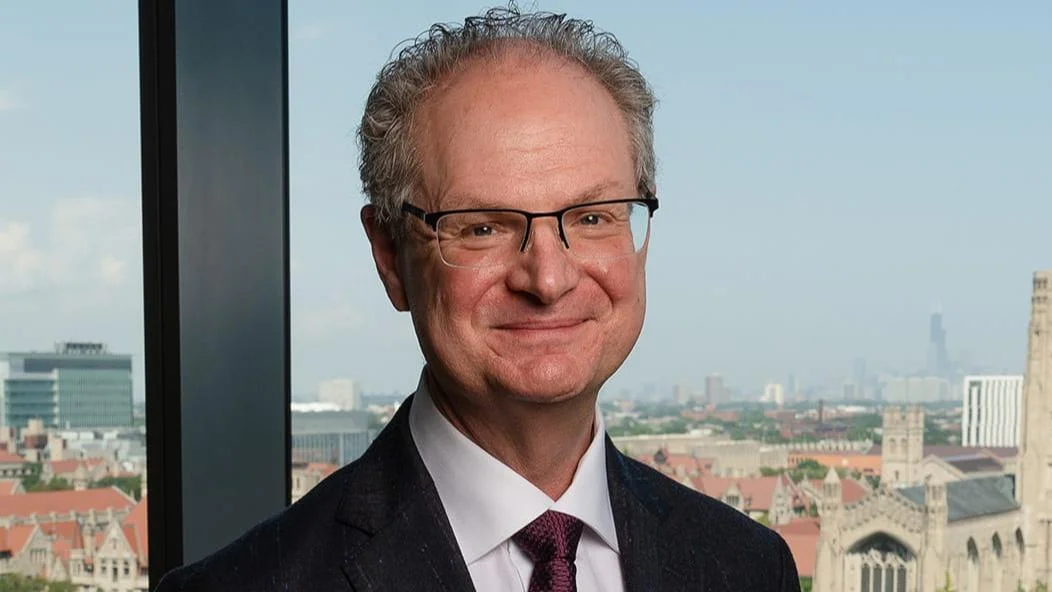The University of Chicago marked the opening of Hyde Park Labs on September 16, a new commercial laboratory facility located on Chicago’s South Side. The 300,000-square-foot building was developed by Trammell Crow Company and Beacon Capital Partners and is designed to support academic research, science-based companies, and the UChicago Science Incubator.
Hyde Park Labs represents the second phase of the Harper Court development. The facility will host research in fields such as life sciences, quantum technology, artificial intelligence, and climate science. It also includes space for IBM’s Quantum System 2 and will house IBM researchers from the National Quantum Algorithm Center.
At the opening event, University President Paul Alivisatos described the project as a significant step in linking research with economic growth. “It will help to energize the local economy and will also help us to do more, because it builds on itself,” Alivisatos said. “This is an important milestone for us, but we intend to continue to invest and to continue to build the local innovation ecosystem here in Hyde Park—and partnering with all those around us to build it out further.”
The university has leased half of Hyde Park Labs’ available space for its Science Incubator and researchers from its Pritzker School of Molecular Engineering (PME) and Biological Sciences Division. Managed by the Polsky Center for Entrepreneurship and Innovation in partnership with Portal Innovations, the UChicago Science Incubator occupies nearly 20,000 square feet.
The building also features the Southside STEM Station—a ground-floor hub offering free hands-on science programs for students and families in nearby neighborhoods.
Startups at the UChicago Science Incubator have access to lab space, mentorship opportunities, capital resources such as the $25 million Harper Court Ventures Fund, commercialization support through business acceleration programs offered by the Polsky Center, advising services, talent connections, and investor networks.
Nadya Mason, dean of PME and interim vice president for Science, Innovation and Partnerships at UChicago, highlighted that faculty would use their space for projects ranging from heat-resistant materials to recyclable polymers while connecting across disciplines. “There’s going to be a lot going on in our 30,000 square feet, but even more important are the connections that we’re going to make with researchers throughout the building,” Mason said. “It’s at these interfaces between fields and between sectors that the magic really happens.”
Mark Anderson, dean of Biological Sciences Division at UChicago, stated his division’s researchers would work across three floors containing 25 labs focused on cancer research, synthetic biology, and generative AI solutions. He stressed that translating data-driven discoveries into patient benefits requires both research excellence and a strong commercial ecosystem: “I think we all know in this room that that requires a commercial process, and for that to work we need an ecosystem,” Anderson said.
According to Samir Mayekar—managing director of the Polsky Center—thirteen startups have signed leases since summer; some originated from UChicago labs. Mayekar referenced over 650 alumni companies associated with Polsky Center raising about $1 billion in funding during the past year as evidence of robust capital networks supporting founders at Hyde Park Labs.
Mayekar recounted his own experience searching for lab space as a battery technology startup founder: “A new reality is possible here for founders because of this space in this building.”
memQ—a quantum tech startup spun out from UChicago and Argonne National Laboratory—was first to move into Hyde Park Labs. Sean Sullivan (cofounder/CTO) cited both specialized facilities needs and hiring advantages due to proximity with UChicago: “These hard tech problems that early-stage companies are solving like us—they need resources: They need lab space very specialized equipment that is super capital intensive,” Sullivan said. “This space provides labs and facilities for companies like ours to work on our technology… but also has a strong pipeline for hiring with the University of Chicago right nearby.”

